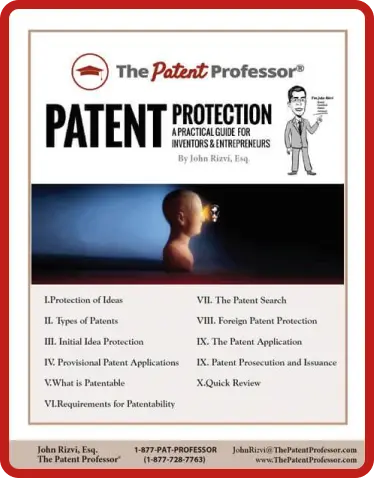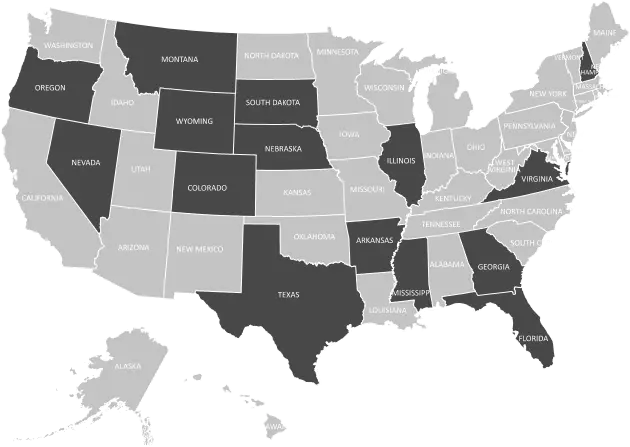Imagine how horrible it would be for a common criminal to impersonate you and steal what’s rightfully yours. What’s worse, imagine that same criminal committing other crimes using your name. Imagine the humiliation and embarrassment.
Every day in America, millions of business owners like you take steps to protect themselves from identity theft. Perhaps you shred your bank statements and keep your Social Security Number under lock and key. You delete suspicious emails and change your computer’s password every week.
But what have you done to protect your business name?
One of the most valuable assets your business has is its good name — your brand name. Contrary to popular belief, incorporating your business DOES NOT protect your company name. I had to break this news to a client of mine recently. He had incorporated in Florida. And he was shocked to discover that the state of Florida had allowed another company to incorporate with a name that was almost identical to his company’s. Unfortunately, he hadn’t bothered to trademark his company name… allowing a competitor to use a confusingly similar variation after he had worked hard to establish his own business.
When you’re starting a business, trademark protection is probably one of the last things you want to think about. That’s why I’ve put together a brief free report on the ins and outs of trademarks. As an entrepreneur, I know you’re busy . . . So the report is a quick, easy read.
And when you download this free report, you’ll also receive a voucher for a free consultation regarding trademark rights for your company name or brand identity.
Just how valuable is intellectual property like brand and product names? If you’re just starting out, you may have very little brand equity. But as your business grows, so does your brand’s value. The McDonald’s brand is valued by Businessweek at 29 BILLION dollars. eBay is worth $7 billion, and Google, $17 billion. That’s not the value of the businesses (equipment, buildings, inventory and the like). Just the brands.
And if these companies don’t take the necessary legal steps to protect their corporate assets, they could lose them to a competitor.
Let me tell you a sad, but true story to illustrate my point . . .
Recently, I took a phone call from the owner of an online kayaking equipment retailer. (Of course, I can’t reveal his name.for reasons that will become clear in a moment. But for now, let’s call him Joe) I could hear the frustration and fear in his voice. There was a touch of anger too (and frankly, after what he’d been through, I’d certainly be furious.)
Joe had spared no expense in creating buzz for his company’s online debut. He’d paid thousands of dollars to an ad agency to create a catchy slogan and develop an entire advertising and marketing campaign. He hired a fancy PR firm (spending thousands more) to create public relations buzz — news releases, media kits, the whole thing.
But when it came to protecting his company’s name, Joe decided to do it “on the cheap.” He surfed around online and discovered a trademark filing service that promised him a 70% savings over what an attorney would charge. And because this well-known service promised to “check” the information provided prior to a filing, Joe signed up immediately. He figured the service would notify him if there was any problem securing a trademark on his expensive new slogan. He was about to find out—the hard way—that the only thing they “checked” was spelling and consistency in the application form!
So, having spent thousands of dollars to create and market his company (and its spiffy new slogan), Joe was shocked to receive a Cease & Desist letter from a competitor—just weeks before his marketing campaign was set to launch. The other kayaking equipment company was monitoring Joe’s trademark filing and threatening to file suit should Joe’s company use the slogan in the marketplace. Why? Because, Joe’s slogan was confusingly similar to the one used by the other company.
As you can imagine, Joe called the online trademarking service in a panic. He was devastated to discover that all the service did was “process the paperwork,” and they advised hire a trademark attorney. (Which is, of course, what he should have done in the first place.)
A proper search and opinion by an attorney prior to filing for the trademark would have identified the potential problem long before Joe spent a dime to develop his marketing and PR campaigns. Sadly, by the time I heard from Joe, it was too late. There was nothing I could do to help him. He had to scrap all the marketing materials, news releases and advertisements that featured the now-abandoned slogan and start from scratch.
Trademark logo samples
So, how much did Joe “save” by hiring a “document preparation and filing service” instead of an attorney? Only about $600. (Ironically, that’s less than Joe was prepared to spend on a single print ad.)
How much did it cost him? It was easily a five-figure mistake!
Joe found out the hard way that obtaining a federal trademark on your company’s name, brands, slogans, logos, Internet domains, or other identifying marks is the only way to legally protect your company against confusingly similar uses by competitors. It’s the only real way to prevent a competitor from committing “corporate identity theft.”
What’s more, federal trademark protection entitles you to use of the “®” symbol to identify your goods or services. And federal registration can also entitle you to higher damage payments and other remedies should you need to protect your trademark in a court of law.
And speaking of damages, what have you done to ensure that your company name and product/service names don’t infringe on another owner’s trademarks? (At least Joe was lucky that his competitor sent him a Cease and Desist letter instead of just suing him!)
You can avoid potential civil fines and damages for trademark infringement by searching the records of the U.S. Patent & Trademark Office before you start your new business. Before you hire a logo designer, invest in printing, signage, advertising and other expenses, be sure that no one else has already registered your business, product, or service names.
I cover all this in Protecting Your Trademark Rights. It’s free report that could save you thousands. And remember, you’ll also receive a voucher for a FREE Consultation on protecting your company or product brand names.
Another one of my clients (I’ll call her “Jona Davis”) could really have used a copy of our Free Report. She thought she could protect her business by simply registering every domain name that was similar to the name of her company. (For the sake of argument, let’s call it “NewStartup.com.”) In addition to the “dot-com” extension, Jona registered the.net,.org,.biz,.us,.mob,.info and.TV extensions.
I thought there was no way anyone could trample my company’s good name,” she told me. “I figured, at $9 a year for each extension, registering the domain names is a bargain compared to getting a trademark filed.”
Somehow her “dot-net” domain name slipped through the cracks and expired without her noticing. She came to us when she discovered that a competitor had snapped up the expired domain name before she could renew it.
One of the first things I asked: “Did you file for a trademark to protect the domain name?” That’s when she explained that registering all those domain names was “a lot cheaper than hiring an attorney” to file a trademark application. So I asked her bout the new extensions that are available-like dot-cn, com.cn, ne.cn and others. “And have you registered all the variations of your domain name that are available?” Just off the top of my head I thought of . . .
“And what about the .net, .biz, .org and other extensions for any of the above variations?”, I asked. When her face fell, I had my answer.
Registering a domain name only prevents a competitor from using that EXACT domain name. (At least, until you forget to renew it.) But there’s no limit to the number of “creative” variations of your domain name your competitors can register—leaving your business completely vulnerable.
A federal trademark would have prevented Jona’s competitors from using the IDENTICAL trademark, as well as any confusingly similar variations. (You still may want to get a few other domain variations for good measure, but you don’t have to go crazy if you have the federal registration.)
The truth is, domain names cost you money each and every year, whereas a federal trademark is forever. And you only have to deal with periodic renewals and other filings every five or ten years. Jona learned the hard way that her “cheap” solution was hardly a bargain.
It’s so easy to avoid the mistakes that both Jona and Joe made. Learn more in our free report,Protecting Your Trademark Rights By John Rizvi, P.A. — The Idea Attorneys®
Regards,
John Rizvi, Esq.
Board-Certified Patent Attorney
John Rizvi, P.A. — The Idea Attorneys®
Email John Rizvi directly.
P.S. Remember, federal trademark protection is the only way to legally protect yourself from trademark infringement by a competitor. Don’t take the chance of losing your hard-earned brand equity. Download the free report today.
P.P.S. For a limited time business owners to downloading the free report are eligible to receive a free consultation tailored to their specific company name or brand identity.
We respect your privacy. The information you provide will be used to answer your question or to schedule an appointment if requested.

Do you have an idea, product or service you'd like to protect? Don't let your idea get stolen!

Do you have an idea, product or
service you'd like to protect? Don't let
your idea get stolen!
At The Idea Attorneys®, we have dedicated our practice exclusively to securing and preserving the intellectual property rights of our clients, including patent, trademark, copyright, trade secret, unfair competition, and franchising matters.


Powered by Law Firm Marketing Pros

Powered by Law Firm Marketing Pros